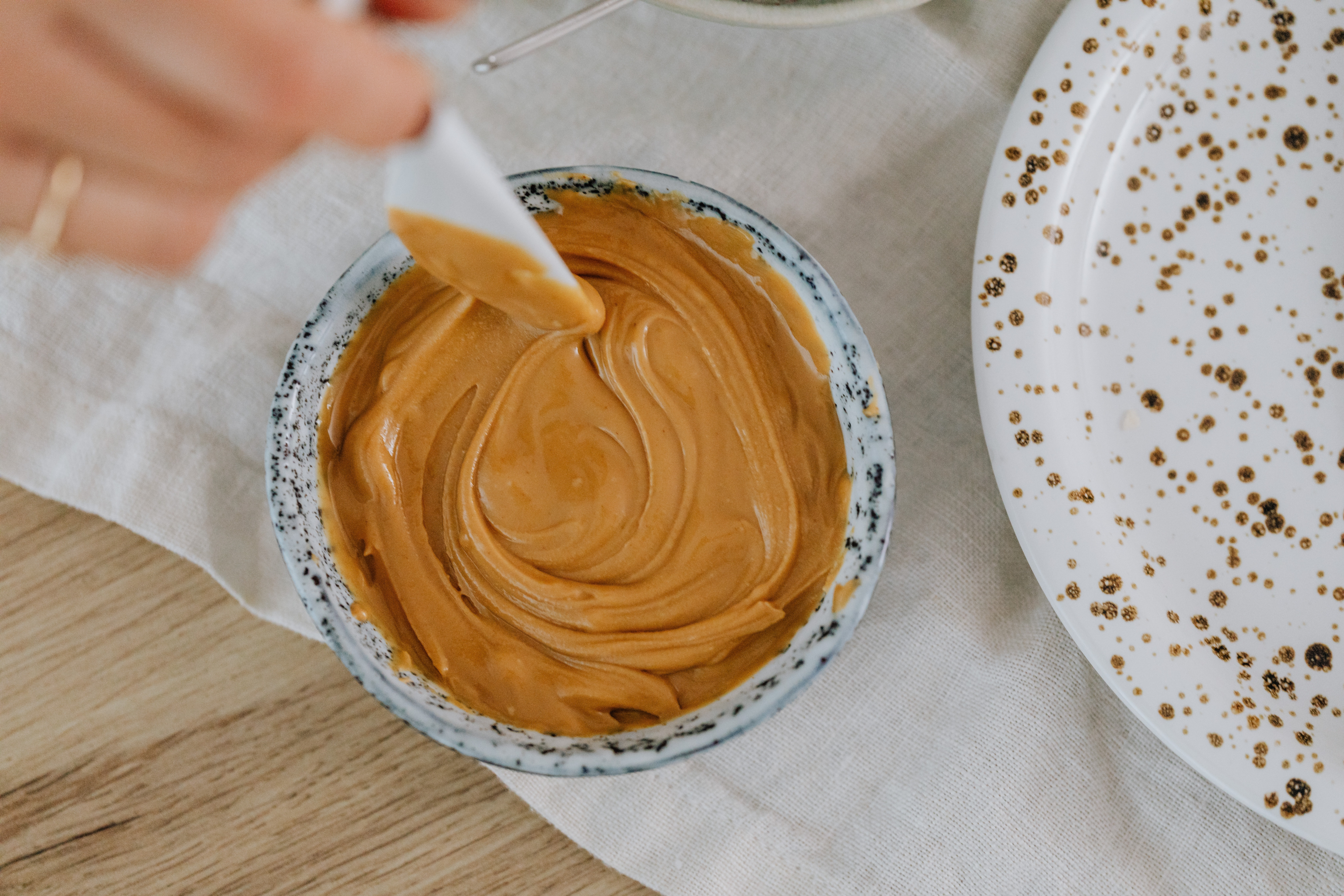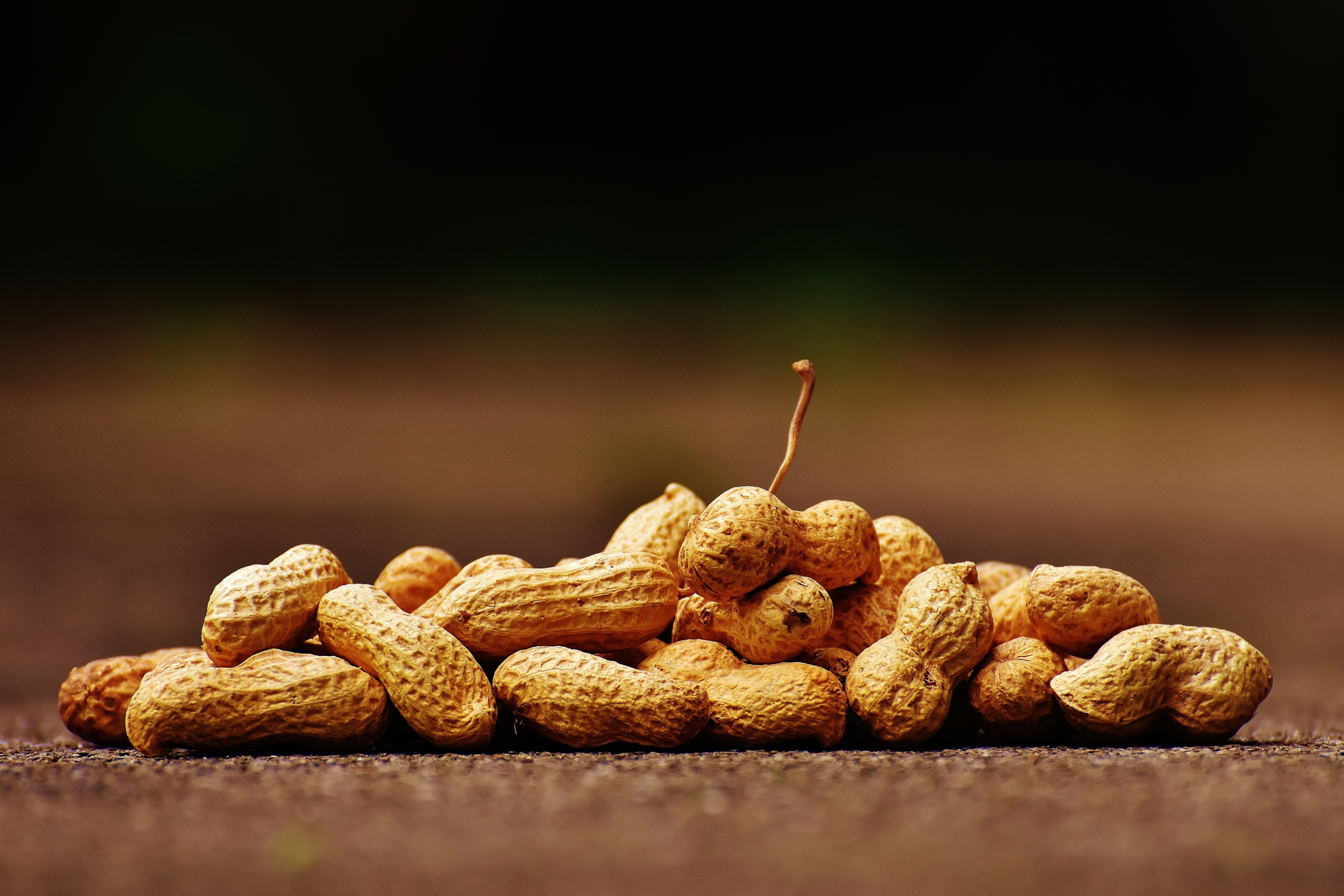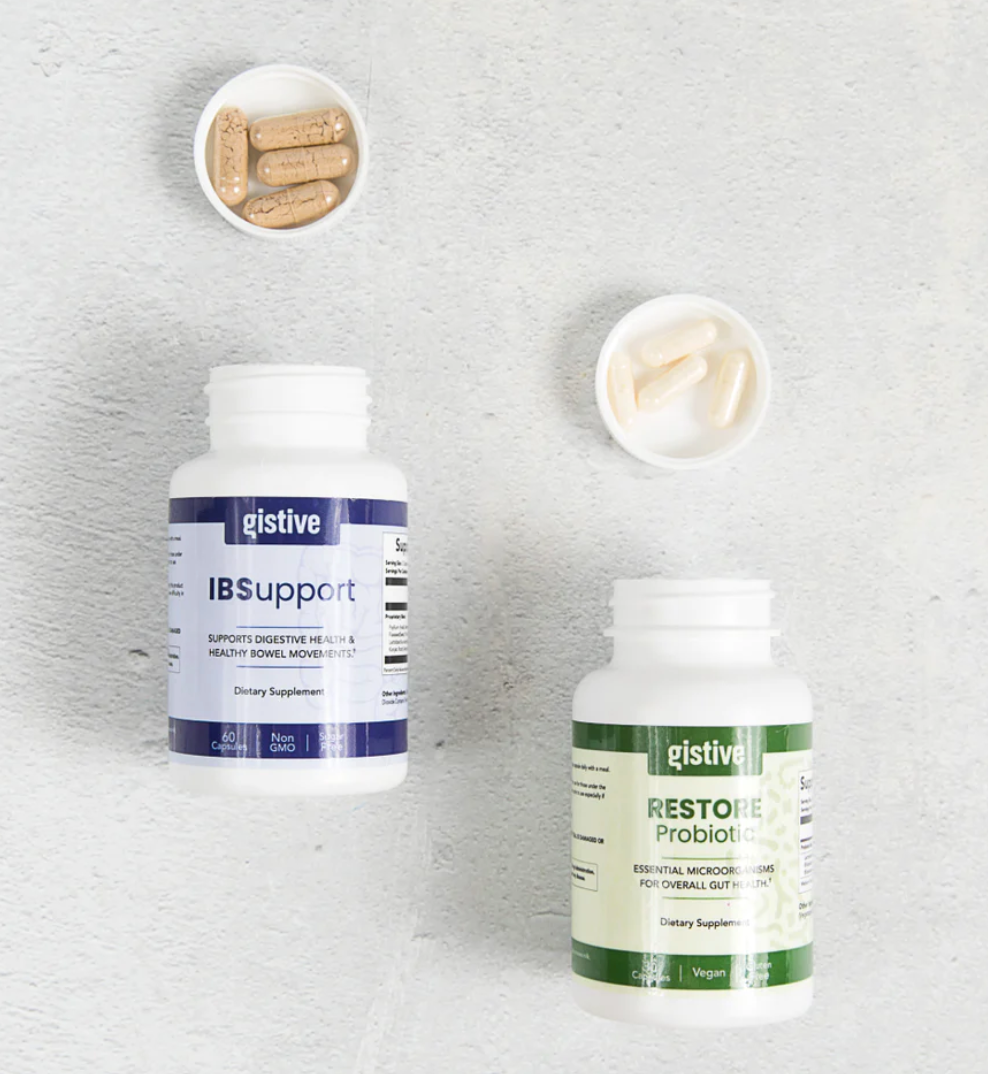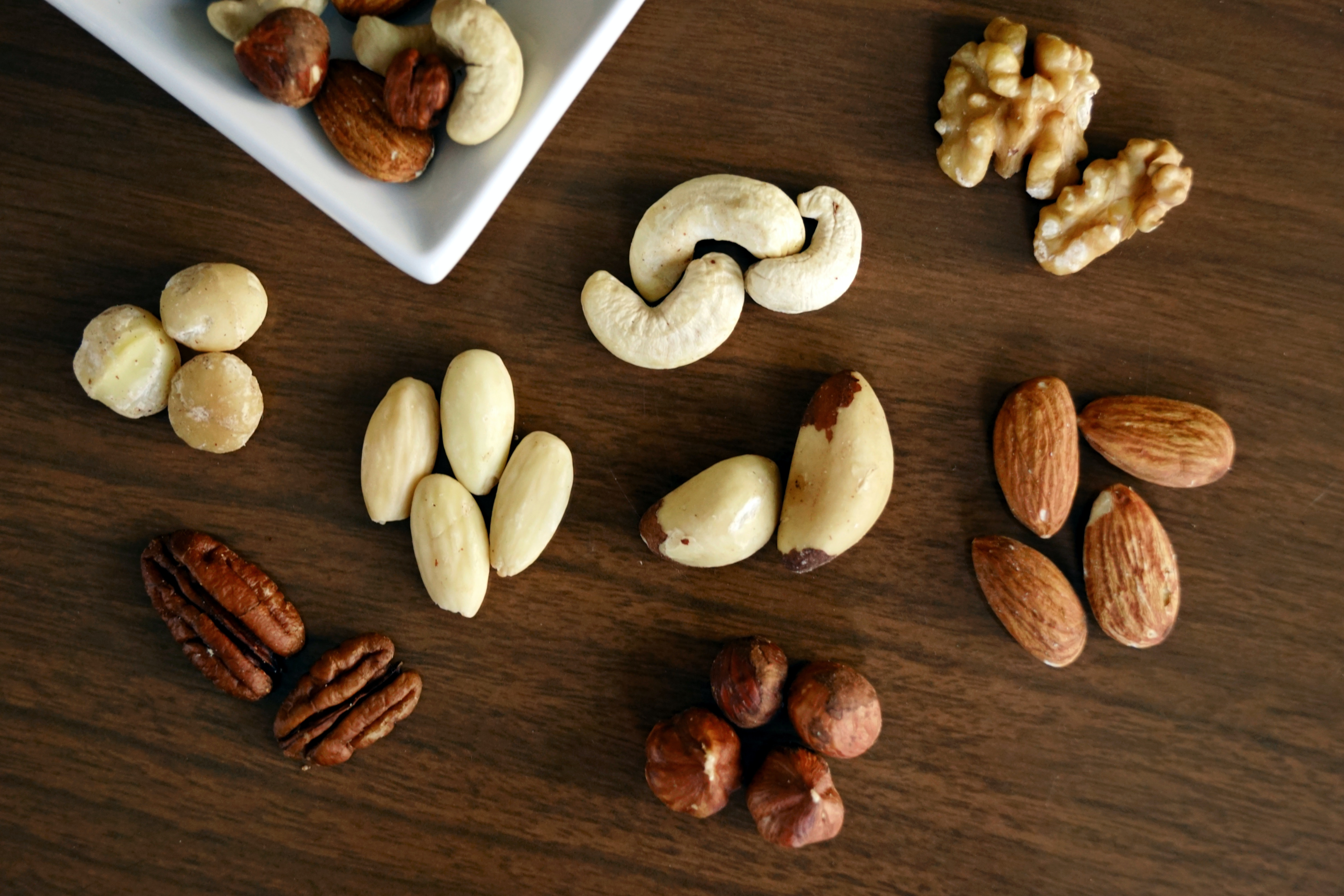Peanut butter has innumerable fans around the world, and we don't contest it - We're fans too, and it's easy to understand why.
Not only is it a delicious yet inexpensive delicacy enjoyed by many, but it's also packed with proteins that can help you get those muscles building. That's actually why peanut butter is an important part of almost every bodybuilder's diet too!

But over the past couple of years, we've seen people link eating peanut butter and constipation, and have trouble finding how the two are connected.
Does peanut butter cause constipation? Is this a delicacy that can lead to those long, stomach-pain-filled nights?
This is a question that's being asked on the internet a lot, and in today's post, we've got the experts huddled together, answering this question about the most common nut butter in as simple a way as possible.
In short, peanut butter constipation is something that is more rumors than truth, as it's more likely that peanut butter will relieve constipation than cause it in the first place.
Though various factors can weigh in on this conversation, knowing them all is the key to having a healthy digestive system, free of constipation. Let's start by tackling the basics, and moving forward with answering the real question.
Table of Contents
- Some Background on Constipation
- Will Peanut Butter Make You Constipated?
- Possible Reasons For Peanut Butter Constipation
- You're Not Drinking Enough Water
- Inadequate Dietary Fiber
- Peanut Allergy
- You're Not Using Probiotic Foods
- Relieving Constipation - How To Do It?
- Using Probiotic Supplements
- Get Moving
- Try Out A low-FODMap Diet
- Laxative Stimulants Are The Way To Go
- Alternatives To Peanut Butter
- Conclusion
Some Background on Constipation
Constipation is a bothersome health problem, as constipation can cause unbearable stomach pain. In constipation, bowel movements become difficult and strained due to hardened stool, and it's caused by a long list of factors that can range from poor diet to taking certain medications, and lack of fiber in the diet.

For occasional constipation, drinking extra fluids and taking an over-the-counter laxative may help improve one's symptoms.
However, for people with chronic constipation, we recommend consulting with a professional, exploring treatment options available to them, such as using prescription laxatives or utilizing laxative aids like enemas or suppositories.
Constipation itself is not dangerous when treated properly, but it's still important to take the necessary steps toward improving your gastrointestinal health and avoid problems like IBS and IBD in the long run.
Will Peanut Butter Make You Constipated?

So coming back to the big question, does peanut butter cause constipation? We've answered it in the introduction before, but there's a more in-depth answer, keeping in view the information we've dispersed above.
Contrary to popular belief, eating peanut butter will not constipate you. While it can certainly be part of a constipation-inducing diet, such as a lack of fiber and water, peanut butter is generally good for digestion.
However, those with a peanut allergy need to eliminate peanuts from their diet as a whole, as constipation often occurs when the body is trying to process an allergen it's allergic to.
And this doesn't just limit to peanut butter - It's the same case for every nut butter out there.
In any case, constipation usually has multiple underlying causes that need to be taken into consideration, something we've discussed later in this immersive guide.
Additionally, if constipation is a persistent problem with you, it's important to consult a professional and make some lifestyle changes to evade this digestive tract problem.
Possible Reasons For Peanut Butter Constipation
Constipation can have a variety of causes, which range from peanut intolerance to not having a healthy diet and having underlying medical conditions.

Constipation is also one of the first symptoms of Irritable Bowel Syndrome (IBS), a problem that affects more than 10% of the world population.
Consuming peanut butter, as we've mentioned before, isn't a common root cause of constipation, and if you're getting constipated after doing so, chances are you're overlooking something crucial.
As you read the following, we’ll explore some possible reasons why your digestive system is having difficulty digesting food, so you can accurately pinpoint what will give you constipation relief.
Keep reading to learn more about why you may be feeling blocked up!
You're Not Drinking Enough Water
Dehydration can be a major cause of all types of constipation, and oftentimes the best way to help ease your digestive woes is to increase the amount of water intake each day.
Water helps to move food through your intestines and plays an important role in helping our bodies absorb key nutrients - all things we need for healthy bowel movements, and prevent occasional constipation.
That's why it's so important to try to get at least 8 glasses of water every day. If you don't want to be drinking plain old water all day long, you can also try out options like herbal tea, sparkling water with fresh lemon slices, and fruit drinks.
Studies also show the importance of getting at least 8 glasses of water every day, which can fight both occasional and chronic constipation, so make sure you're getting your water intake right before you blame the peanut butter.
Inadequate Dietary Fiber
The second probable cause of your constipation is inadequacy in dietary fiber, and believe us, we've all been there.
When this dietary fiber is low, or nonexistent (for some people), it causes the movement of food through the digestive tract to slow down, resulting in constipation.
To prevent this from happening, it's important to introduce more dietary fiber into your diet by eating more high fiber foods such as whole grains, fruits and vegetables, nuts and seeds, beans, and legumes.
Increasing your intake of fiber-rich foods will not only benefit your digestive system but can also help with maintaining a healthy weight, as when you eat fiber-rich foods, you feel more full and replenished as compared to eating processed foods.
Peanut Allergy
Food intolerance and allergic reactions can go a long way, from conditions like skin rashes and abdominal pain to making your constipation worse , and you need to be wary of the things your body cannot tolerate.
If you're getting overly constipated just at the sight or smell of peanut butter, chances are you have a peanut allergy or are allergic to something in the manufacturing ingredients.
And that's just that. You're not going to have a moment where you enjoy peanut butter, and the faster you stop your peanut butter consumption, the better it is for you and your unfortunate peanut intolerance.
You're Not Using Probiotic Foods
Eating probiotic foods is essential for maintaining a healthy digestive system, which can help alleviate various digestive issues like constipation.
Probiotics are beneficial bacteria and yeasts that live in the gut and aid digestion, but without them the digestive tract becomes clogged with waste and fluids, leading to infrequent bowel movements.
Make sure you're adding probiotic-rich foods to your diet and eating things like kimchi, miso, yogurt, sauerkraut, and kombucha into your diet if you want to steer clear of constipation.
Relieving Constipation - How To Do It?
Are you looking for ways to alleviate constipation? If so, then this blog post is perfect for you! Constipation can be extremely uncomfortable and sometimes even a bit embarrassing.
Fortunately, there are many things you can do to provide relief, and as you keep on reading, you'll find key ways to tackle this digestive disorder.
Using Probiotic Supplements
If constipation is an issue that you've been struggling with, probiotics could be the solution. Probiotic supplements are a great way to support gut health which can lead to the relief of constipation symptoms.

Both of our products, IBSupport and Restore Probiotic, are loaded with superfoods and a high CFU count that can not only cure problems like constipation but make sure your digestive health is in perfect shape. Check them out here.
Probiotics are beneficial bacteria that are naturally found in your gut and have been shown to help regulate digestion and provide regularity.
Adding probiotic supplements to your diet can aid the digestive system in doing its job better, and with the industry blooming, you'll find a tonne of different options that cater to your specific needs
When taken routinely, these probiotic supplements start to strengthen your immune system, and prevent problems like constipation and bloating in your body.
Get Moving
Exercising is one of the most well-known strategies for relieving constipation. Regular physical activity can help your digestive system move food through your intestine more quickly, and also stimulate the nerves and muscles in your colon to normalize its contractions.
Additionally, exercising helps boost healthy bacteria in your gut that are necessary for processing food and keeping your immune system strong.
P.S.: Did you know that exercise can also promote bowel movements by increasing the production of hormones like serotonin and noradrenaline that not only bring better moods but are natural laxatives to get the ball running for you?
Try Out A low-FODMap Diet
A low FODMAP diet cuts down on the number of certain carbohydrates eaten such as fructose, lactose, polyols, and other fermentable foods, which have been proven to worsen digestive disorders like constipation, and invoke food intolerance if you have any.
Taking proactive steps towards constipation prevention by following a low FODMAP diet is an excellent way to ensure comfortable digestive health and keep any bouts of constipation at bay.
Additionally, a low-FODMAP diet is a healthy diet, so you're essentially killing two birds with one stone.
Laxative Stimulants Are The Way To Go
To fight constipation, especially if it persists, taking remedies that are designed specifically for this task is the way to go.
One way constipation can be relieved is through laxative stimulants, which are produced to restore every healthy bowel movement, and get you back on track with your pooping cycle.
Fortunately, depending on the severity of constipation, there are several types of laxatives available.
We recommend taking a natural laxative, as they use substances like fiber or herbs as ingredients to stimulate constipation relief and bring regular bowel movements.
There are also other types of laxatives like over-the-counter medications or even prescription-strength remedies, but they should only be used when recommended by a medical professional.
Alternatives To Peanut Butter

Natural peanut butter is a timeless classic, but constipation and food sensitivities can hinder this pleasure. Luckily, there are plenty of alternative spreads to this nut butter that can add the same kind of sweetness and protein to your favorite recipes and snacks.
Some better alternatives for peanut butter include almond butter, cashew butter, and others, and before you contest our reasoning, here are the various health benefits of these two.
Almond butter and cashew butter are popular options, both boasting slightly different flavors compared to peanut butter.
Both of these options are full of monounsaturated fats, otherwise known as healthy fats. The market is full of similar alternatives to peanut butter, and it's all a matter of how much you're willing to look for them!
Conclusion
Having to stop eating peanut butter isn't the only way to go, and while in some cases it can be good for your constipation, we've made an extensive guide on the various reasons why you're getting constipated now and then, and peanut butter is the least of our concern, especially if you're not allergic.
However, if constipation is a persistent problem for you, we recommend taking professional help and having a doctor examine the underlying reasons behind it.

![Does Peanut Butter Cause Constipation? [Don't Blame The PB!]](http://gistive.com/cdn/shop/articles/resized.jpg?v=1678022477&width=1100)